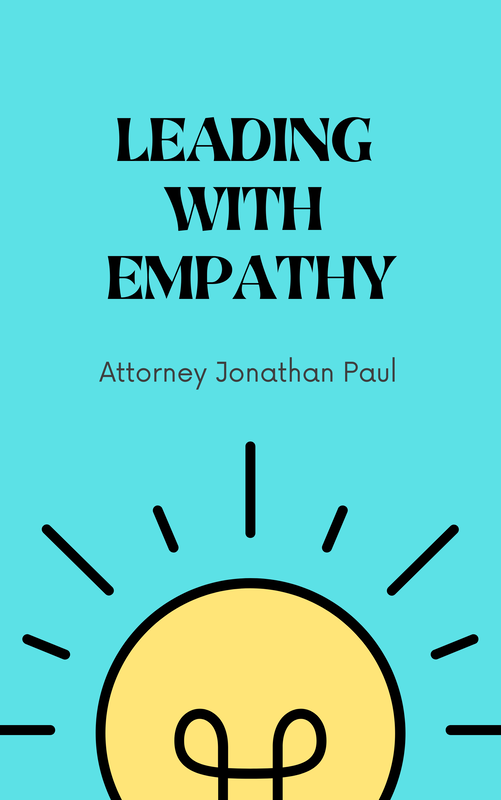Leading with Empathy - Step #18When charged with a crime you feel powerless; the walls are closing in on you; why would anyone listen to someone who committed a crime? To have a voice is to be heard, and to be heard is to have influence. Being a transformative client is about finding your voice and influencing the direction of your case.
We cannot be satisfied to believe that nobody wants to hear our voice. It will feel that way at first, because it is mostly true, but over time, it is very possible to have a meaningful impact on the direction of your case. This impact comes from finding your higher purpose for yourself during the case; it must provide meaning to your life, and how you want to change yourself and those around you for the common good. Being charged with a crime can bring out a new person, and potential great self-discovery; no better time to learn about yourself and make changes than when you believe you have hit rock bottom. The underlying issue that brought you on the wrong side of the law was ignored for too long; it is finally on the surface, and it is time to take advantage of this opportunity. Having the ability to influence others and bring them into your purpose and vision is a function of your motivation to do so. When you make the decision to change it must be led by your purpose, vision and true motivation; you will achieve a lesser outcome if your actions are not motivated by the right reasons; clients who truly care about change can achieve greatness. Remember, this is about the process; if you focus only on outcome, you will not gain the real benefit of transformative change. When we act with courage in our case, we engage both our head and our heart. We can speak with influence and the power brokers take notice and treat you like a human being. We transition from a transaction mindset, but more importantly we take the prosecutor and judge out of this mindset. Do not be embarrassed of where you stand today; despite being charged with a crime, know that millions of people have come before you, and millions will come after you; good, hard-working folks who respect the law, but due to underlying circumstances allowed their best judgment to slip, which created an isolated moment in time. Once we understand that we are not a bad person, and not a criminal, we can be empowered to tell our story, be vulnerable and demonstrate our true self. We have a powerful bank account of positive and impressive accomplishments; we have people who trust and believe in us; we have employers who value us, and family members who love us; how can we leverage this account to be our true self? We must tell our stories; the good and the bad, but most importantly speak up, smile, be yourself. Show you are there, and you should be valued. Real life example of using your voice A client who has never had legal issues, held a good job and had a family to support feels like a fish out of water when charged with a crime. It is easy to allow the weight of the case to overcome your world; it feels like who you were before the case no longer matters, and it's all about the incident. This is usually true for a criminal case; the prosecutor and judge will view your case as a name and a charge and treat it like a transaction. If a client is charged with leaving the scene of an accident, they face a criminal record, points on license, jail time, and their ability to drive could be impacted. This client may have a perfect driving record, no criminal history, and otherwise be a responsible member of society, and a safe driver. What if this client drove over a few mailboxes because they were distracted while driving, panicked and drove away? The police show up at her house, because there was footage from security and neighborhood cameras in the area. On paper this client looks like a jerk; damaged others property and drove away without any care in the world. Applying a transaction mindset, it would make sense to punish this person, maybe even send them to jail for a weekend and tell them they can't drive for a few months. Is this really the best outcome? What if we use our voice and educate the prosecutor and judge about the underlying issues in this case? What if this client had a sick child at home who was progressively getting worse, and they kept receiving calls and texts from their spouse to hurry up? This person's mind is in 10 other places, they are doing their best to rush home. It's not a defense or an excuse for crashing into mailboxes and driving away, but it does provide context for the incident. If we use our voice and lead with both our head and heart, we can turn a transactional case into a humanized set of facts, which when you apply common sense makes a lot more sense. We must still acknowledge the wrong-doing and learn from what happened. This would be a perfect case to put a few proactive steps into place, show remorse, understanding and work to make things right, but this person should not go to jail, lose their license or have a criminal record. Comments are closed.
|
Available on AmazonJonathan Paul- X-Prosecutor |
